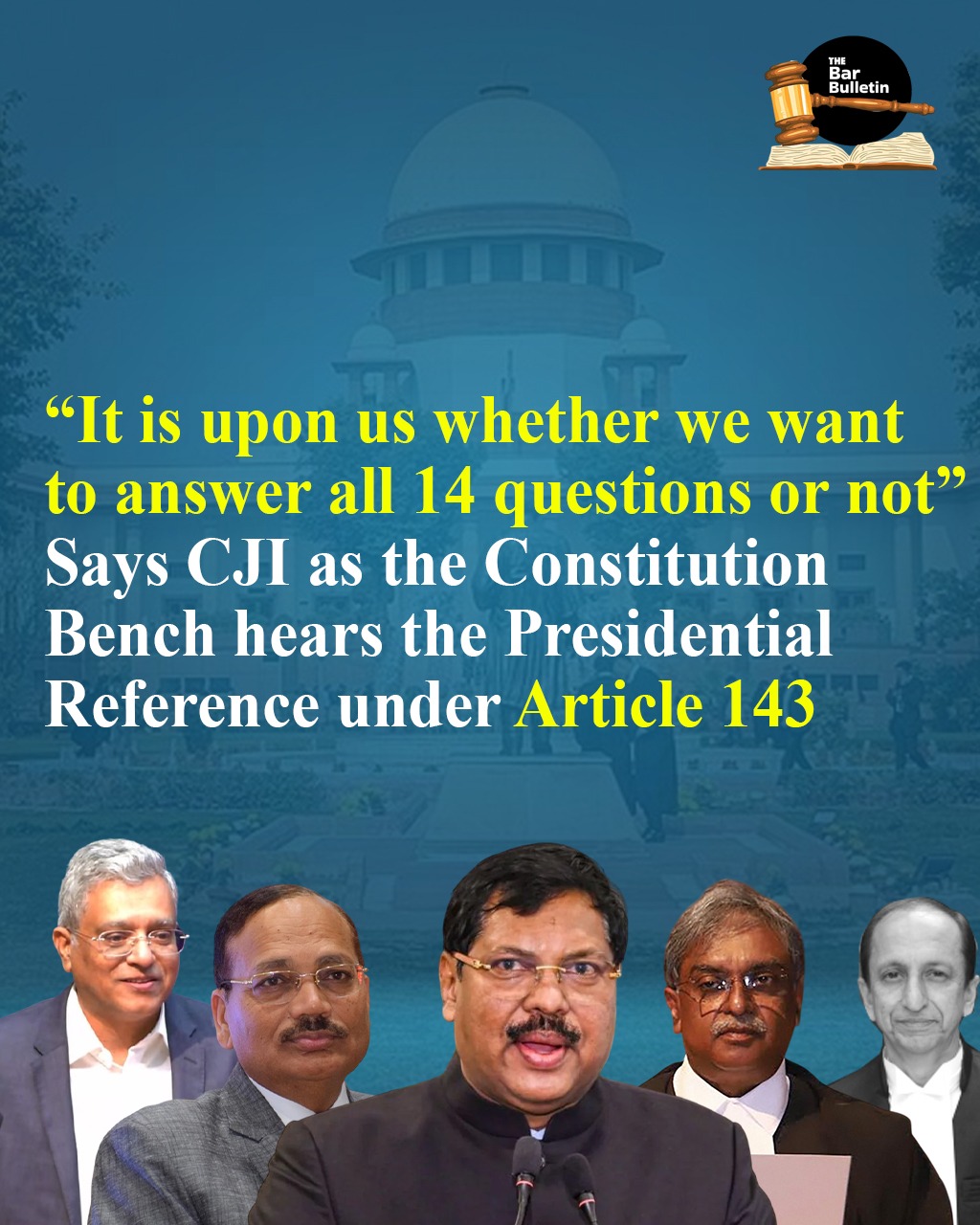In the ongoing Presidential Reference invoked under Article 143 by President Draupadi Murmu before a five-judge Constitution Bench of the Supreme Court has brought renewed focus on the constitutional roles of Governors and the President in granting assent to bills. Here, the reference seeks judicial clarity on 14 questions, including whether fixed timelines can be imposed for granting assent and whether inaction may be concluded as “deemed assent.”
The reference was prompted by the Court’s 2024 judgment in the Tamil Nadu Governor’s case, in which a Division Bench held that the Governor’s decision to reserve state bills for the President was made without bona fides. In that judgment, it was further held that if the President failed to act within three months under Article 201 of the Indian Constitution, the bills would be treated as having received assent.
THE OPPOSITION
On behalf of Kerala, Senior Advocate K.K. Venugopal has argued that the present reference is not maintainable. He submitted that the President, being bound by the aid and advice of the Council of Ministers under Article 74, is essentially conveying the Union’s position. In his view, the Union cannot bypass the established mechanisms of review or curative petitions and instead use Article 143 to reopen matters already decided. He warned that permitting this course would undermine Article 141, which makes Supreme Court judgments binding across all authorities.
Senior advocate Abhishek Manu Singhvi, representing Tamil Nadu, echoed these concerns and added that the Division Bench ruling had effectively rewritten Article 200 by eliminating any discretion previously recognised in the office of the Governor. Such a substantial constitutional shift, he argued, should have been considered by a larger bench under Article 145(3). According to Singhvi, allowing the reference would only compound this institutional irregularity.
Both Venugopal and Singhvi drew upon the Supreme Court’s reasoning in the 2G Spectrum case (Centre for Public Interest Litigation v. Union of India, 2012). That judgment distinguished between the binding “decision” in a case, which is final and conclusive, and the “view of law,” which may evolve over time. Their concern was that the present reference risks unsettling both, thereby transforming the advisory jurisdiction into a surrogate appeal against an earlier ruling.
THE UNION-
The Attorney General R. Venkataramani and Solicitor General Tushar Mehta defended the reference, asserting that the President retains the authority to seek clarity on questions of constitutional significance. They argued that situations may arise where a bill could be so fundamentally unconstitutional that the President must be guided by judicial opinion before acting.
Supporting this position, two senior advocates Harish Salve and Maninder Singh pointed out that Article 143 was crafted precisely to address such uncertainties. They emphasised that past references, such as the one concerning the Cauvery Water Disputes Tribunal, illustrate the Court’s willingness to step in and provide guidance even in fields where judicial precedent already exists.
During the hearings, members of the Bench posed probing questions. Justice P.S. Narasimha explored whether constitutional protections under Article 361 might shield gubernatorial action under Article 200 from judicial scrutiny altogether. The Chief Justice observed that, even if the reference were to be entertained, it remained open to the Court to decide whether all fourteen questions needed to be answered or whether some could be left untouched.
For now, the Bench has concluded its initial round of hearings on maintainability. The States insist that the advisory jurisdiction cannot be used to reopen what has been conclusively settled, while the Union contends that clarity on such issues is indispensable for governance. The matter has been reserved for further arguments, and the Court’s eventual opinion is awaited with considerable anticipation.
Citations:
• In re Cauvery Water Disputes Tribunal, 1992 Supp (1) SCC 594
• Centre for Public Interest Litigation v. Union of India (2G Spectrum case), (2012) 3 SCC 1
• Hoechst Pharmaceuticals Ltd. v. State of Bihar, (1983) 4 SCC 45
• Rameshwar Prasad v. Union of India, (2006) 2 SCC 1



